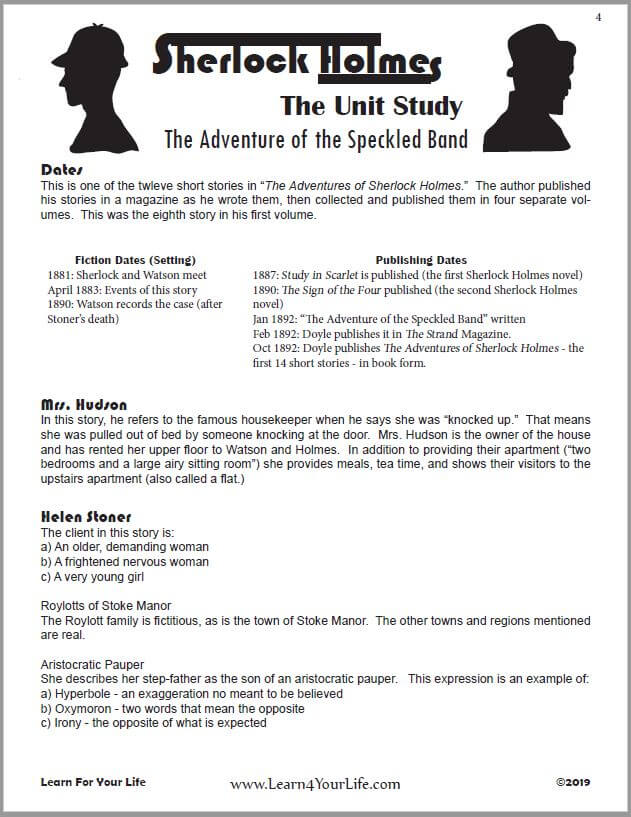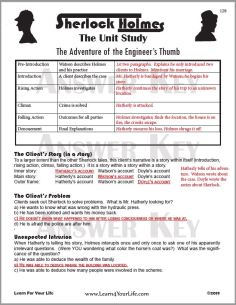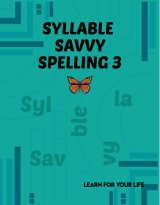Adventure of the Red Circle Analysis
#H - 41: REDC
The Adventure of the Red Circle shows Holmes' knowledge of international crime families. But how successful is his technique in this case?
This is the forty-first Sherlock Holmes short story and the third in the collection His Last Bow.
Please note that we don't retell the story on this page (assuming if you haven't read the story, you should be reading it, not this.) We are highlighting and summarizing some of the interesting features and literary elements here. Spoiler alert: We also make no attempt to not give away the plot or ending. Therefore, if you haven't read it: go read it now!
Dating of the Story
- Setting of the story: Not given, but after Dr. Watson had left practicing medicine. (Holmes stated to Watson, "when you doctored.")
- Date recorded by Watson: not specified but according to Watson's last sentence in His Last Bow preface this is one of the stories "which have lain long in my portfolio".
- First published by Doyle in The Strand March 1911
- Published in Book Form: 1917 His Last Bow - the fourth collection of short stories
Action Plot
You may wish to review the six parts of the usual action plot for Sherlock Holmes stories. In The Adventure of the Red Circle we see these deviations from the usual plot structure:- Pre-Introduction (opening prior to the case): The first six paragraphs make up the pre-introduction and present four interesting features in this tale:
- A unique start: the only time a client speaks in the opening line.
- No role for Watson (The pre-introduction is rightly Watson's domain which he abdicates here.)
- The pre-introductory pronouncement is a question, not a comment (see two sections below this one for a discussion of this feature.)
- The preintroduction melts right into the introduction (An occurence that happens several times in the canon, but usually the preintro and intro are distinct.)
- The Introduction (explanation by the client): This is a typical introduction with the client presenting her story to Sherlock and to us in 48 paragraphs. (Keep in mind, as your English teacher no doubt told you, a paragraph might be only one word when a speaker speaks only one word.) But is Mrs. Warren really the client? See the discussion below.
- Rising Action (Holmes' investigation): As with other tales, the rising action is comprised of his investigation, but here he begins it as soon as the client heads out the door. In this case, he begins his investigation with the newspaper agony columns. His investigative phases include
- PART I
- Searches newspaper columns
- Mrs. Warren returns with information about attack on her husband
- Holmes check's out Warren's house, lodger, and neighborhood (discovers its a woman.)
- Warning signals at the window
- PART II (one of the few stories where Doyle inserted parts)
- Meets Gregson/Leverton (learns they are after Gorgiano of the Red Circle)
- Enter the Apartment and find the body
- Climax: Gorgiano, the enemy of the female lodger, is dead.
- Falling Action: We return with the woman to her rooms in Mrs. Warren's house and learn her story. The falling action - in this case - is a story within a story.
- Denouement (see below): Our story is wrapped up after Emily Lucca finishes telling hers. Doyle ends it in his classic fashion as detailed below.
Story Opening
This story opens with a Baker Street Scene, which is one of three different Sherlock Story Starters.The first words of the story consist of a quote from the client/visitor, the only Sherlockian story which does so.
In our opening scene we also witness Sherlock turning down this client - or at least tries to reject the case. Mrs. Warren persists and insists and he ends up taking it "with a sigh of resignation."
Another interesting thing about this opening dialogue is one of the reason's Holmes gives for NOT taking the case: his time is so busy. So busy, in fact, that he is gluing paper into his scrapbook. From this we might assume that Sherlock is not hot upon some urgent case, but he has also not been a long time since his last case concluded. (He gets very anxious for a case when he has been idle for a while.)
Pre-Introductory Pronouncement and FulFillment
The opening Baker Street Scene and dialogue with Mrs. Warren contain the pre-introduction pronouncement and its fulfillment, a literary element Doyle wove into his short stories.Pronouncement: Why take this case?
The pronouncement is actually a question: "Why should I take this case?"Those are not the direct words of Holmes, instead he makes a statement that he sees no reason why Mrs. Warren should be uneasy nor why he should waste his time on an unimportant matter. But we can shorten it to the paraphrase, "Why should I take the case?" That question, in fact, comes up more than once in this story.
Fulfillment
So why should he take the case? The question is considered at different points in the story.1. Pre-Introduction
The first reason Sherlock accepted the case (in addition to Warren's tenacity) is for flattery and kindness - at least partially.Holmes was accessible upon the side of flattery, and also, to do him justice, upon the side of kindliness.
2. Rising Action
During the rising action, Watson asks the same question:It is, therefore, for the sake of of the art of detection and self-education that Holmes continues the case. It should be noted that Sherlock makes that statement multiple times throughout the series, particularly with those who can't pay, that the practice and development of his art is its own reward.
- Watson: What have you to gain from it?
- Holmes: It is art for art's sake, Watson. I suppose when you doctored you found yourself studying cases without thought of a fee?
- Watson: For my education, Holmes.
- Holmes: Education never ends Watson. It is a series of lessons with the greatest for the last. This is an instructive case. There is neither money nor credit in it, and yet one would wish to tidy it up.
3. Denouement
Education, Gregson, education. Still seeking knowledge at the old university.
4. Final Question
So it is for education and the love of improving the art of detection (as well as kindness and persuasion-through-flattery) that keeps Holmes on this case.But that brings us to another question? Who was the client? It appears to be Mrs. Warren at the beginning of the story.
In the sixty-story Sherlock canon, we do occasionally see Holmes discuss money. We can learn that he easily gives away his services to those in need, and gladly accepts payment from those well-situated. We never see him quote his fee or hand a client a bill.
But this case goes beyond Mrs. Warren's initial problem: "Who is my tenant and what are they doing up there?" It would appear that Mrs. Warren might get a modest bill for finding the identity of the tenant. But soon into the case Holmes is not working on behalf of Mrs. Warren, but the Lucca's. So who gets the bill? Likely, this case was gratis on the part of our expert-detective.
A Successful Case
It's a happy ending when the bad guy dies and the good guys escape peril. But was Holmes really the hero?It turns out that Sherlock actually didn't do anything to help. He cracks the original problem brought to him: what's up with Mrs. Warren' lodger? But it is Gennaro Lucca who rids society of the real threat and would have done so whether Sherlock was on the case or not. But as Holmes flippantly remarks, it increased his education and gave us detective readers another good story.
A Closer Look At Holmes

Sherlock's Personality
Short clues into Holmes' personality are sprinkled into every tale, including this one.Kind but moved by Flattery
We noted above the quote about kindness and flattery, but it wouldn't hurt to repeat it.Holmes was accessible upon the side of flattery, and also, to do him justice, upon the side of kindliness.
Hypnotic
We also learn he has a hypnotic personality:Holmes leaned forward and laid his long, thin fingers, upon the woman's shoulders. He had an almost hypnotic power of soothing when he wished. The scared look faded from her eyes, and her agitated features smoothed into their usual commonplace. She sat down in the chair which he had indicated.
Committed to His Art
We'll risk boring our site-vistors by re-listing another quote already used on this page, but for a different reason:We get several glimpses into the man's mind - and all for the good. Having taken up a case he stays with it, even when it delves into danger. He does not stop simply with solving Mrs. Warren's problem, but automatically involves himself in helping an unknown person in peril. That there is jeopardy for himself, with no chance of money or recognition, is inconsequential. And while he states it is for the love of learning - which we know is a major motiviation to Holmes - his desire to help a vulnerable person struggling under threat is incentive enough.
- Watson: What have you to gain from it?
- Holmes: It is art for art's sake, Watson. I suppose when you doctored you found yourself studying cases without thought of a fee?
- Watson: For my education, Holmes.
- Holmes: Education never ends Watson. It is a series of lessons with the greatest for the last. This is an instructive case. There is neither money nor credit in it, and yet one would wish to tidy it up.
Holmes and Women
Watching the relationship between Holmes and women has long been a fascinating subject for Sherlockians. In The Adventure of the Red Circle we get double-duty with two different women.First is Mrs. Warren, an older woman whom he begrudgingly decides to serve, largely based on flattery and kindness. We also see him use his hypnotic abilities to calm her down by touching her. Usually he just tells the guys to contain themselves.
Second, the lodger - a threatened woman who happens to be young and beautiful. Hmmmm, did her youth and beauty inspire him to continue this case with more enthusiasm than he accepted it? Watson often tells us that women have no attraction for Holmes, but every once in a while a situation comes along that may indicate this isn't entirely true.
Considering Holmes Professional Practice
We don't get much information about the business end of Holmes consulting detective practice. In the earlier years, we know he often had long, restless periods between cases and such times of idleness often led him to depression or worse.But here, we find that he is busy, or at least he uses that as an initial excuse to decline this case. But what is he busy doing? Gluing items in his scrapbook?
It appears that usually Holmes takes on one case at a time, solves the case, and moves to the next. Certainly that is true in his earlier years when cases were fewer. We also have some instances when he sends Watson to do field work, because he appears to be busy. But often we find out that he had another reason for sending Watson than Holmes himself was tied up in another case.
But in the introduction to this tale Holmes gathers the information from Mrs. Warren, than states:
We have no excuse for an intrusion upon his privacy until we have some reason to think that there is a guilty reason for it. I've taken up the matter, and I won't lose sight of it. Report to me if anything fresh occurs, and rely upon my assistance if it should be needed.It appears from this, and a few other such cases, that the detective might indeed work on several cases at once. While waiting further developments in this case, he continues with other activities.
Scrapbooking
So Sherlock Holmes was one of the original scrapbookers. Who would have known? No doubt he did not have all the colorful papers and inserts at the local craft shop that we have today.His scrapbooks have been mentioned before, on this page and in other cases.
But we also learn that:
He also took down the great book in which, day to day, he filed the agony columns of the various London journals. "Dear me!" said he, turning over the pages, "what a rag-bag of singular happenings! But surely the most valuable hunting ground that was given to a student of the unusual."We know from other cases that he read multiple London papers, so it was quite a project he had going on there.
Journeys End With Lovers' Meetings
Sherlock demonstrates his knowledge of Shakespeare numerous times, including this quote Journeys end with lovers' meetings when he sees Inspector Gregson outside Mrs. Warren's house. He also uses the same quote in The Empty House. So what does it mean?The quote can loosely be considered to mean that a person's life journey is completed when they finally meet their lover. This doesn't indicate Gregson and Sherlock were lovers, but was a glib way for Sherlock to say, "Imagine finding you here. What journey is about to end now that we are both here?"
That, of course, is a rather loose interpretation.
Sherlock and Other Detectives
This story illustrates Sherlock's familiarity with and to other detectives. First, he meets Inspector Gregson unexpected on the street as old friends. Gregson utters something few official detectives ever would: "I'll do you this justice, Mr. Holmes, that I was never in a case yet that I didn't feel stronger for having you on my side."Twice in the story Gregson admits he can't imagine how Holmes became part of the case. Indeed, considering that the Lucca's were poor and the Warren's had no genuine interest in the case, it is not a bad question. But it does demonstrate Holmes ability to amaze his offical counterparts.
When Holmes meets Leverton, an American detective from Pinkerton Agency, he immediately knows who he is. Indeed, Holmes is aware of one of Leverton's cases and is genuinely pleased to meet him.
And, finally, Holmes demonstrates his knowledge of criminals and organized crime when he immediately associates the name "Gorgiano" with the Red Circle.
Finally, you might enjoy Watson's description that, "Our official detectives may blunder in the matter of intelligence, but never in that of courage." It seems Sherlock's views of Scotland Yard have rubbed off on Watson
Organized Crime in Sherlock Holmes Stories
The Red Circle is a fictitious, secret society of organized crime in Italy and New York. It is described as a "Neopolitan society" indicating the headquarters is in Naples, Italy. This is one of several such criminal societies through the canon:- A Mormon cult: Study in Scarlet
- KKK Five Pips
- Chicago Gang: Adventure of Dancing Men
- Masonic Group in California: Valley of Fear
First, The Red Circle is the fifth criminal organization mentioned. The other four are all American crime families, but the Red Circle is international, originating from Italy.
Second, Holmes, the ever-astute criminologist, is familiar with all of these groups before he encounters them professionally. Smart dude, right.
It appears that his penchant for taking up cases for their educational value helps make him successful.
Baker Street Treasure Hunt
For those of you joining us on our Baker Street Treasure Hunt here's the object in this story:Gum brush
Glue was made from the residue of a gum tree, and a brush was used to apply the glue for his scrapbooking. It was before Elmer's glue invented those frustrating orange caps that always get clogged.
Ending
The three-paragraph ending, with one speaker for each paragraph, wraps up the tale.1. Leverton states the Luccas will earn the thanks from America.
2. Gregson acknowledges Mrs. Lucca likely is not in serious legal danger, but they have to go through the official process since her husband is Gorgiano's killer. He again wonders how Holmes managed to get involved.
3. And finally, Holmes closes the story. First he answers Gregson that this is a case about education (see above on pre-introductory pronouncements.) Second, he makes his first reference in this story Watson's narratives about his cases by stating it was tragic and grotesque (words used previously in other stories.) And finally, Holmes provides us with one of his famous flippant final remarks when he states that they might catch the second act of Wagner opera if they hurry.
So what is so flippant about that final remark. First, he was originally too busy to take up the case which has resulted in the capture of an internationally hunted villain, but now he has time to go to the opera? And second, who wants to miss the first act and get to the second act anyway. But Holmes, the lover of music and opera attender, has finished this case and is ready for the next thing.
The unit study below analyzes eight of the most popular Sherlock Holmes stories. The Adventure of the Red Circle is not one of the eight in this unit study.
Buy Sherlock Holmes: The Unit Study


Student Guide AND Teacher's Answer Key Included
$2.99 Download - 183 pages
Eight of the most popular tales demonstrate how to investigate a detective story.
![]()
Sherlock Holmes Pages
A catalog of our pages on Sherlock Holmes.
About Our Site
Hands-On Learning































